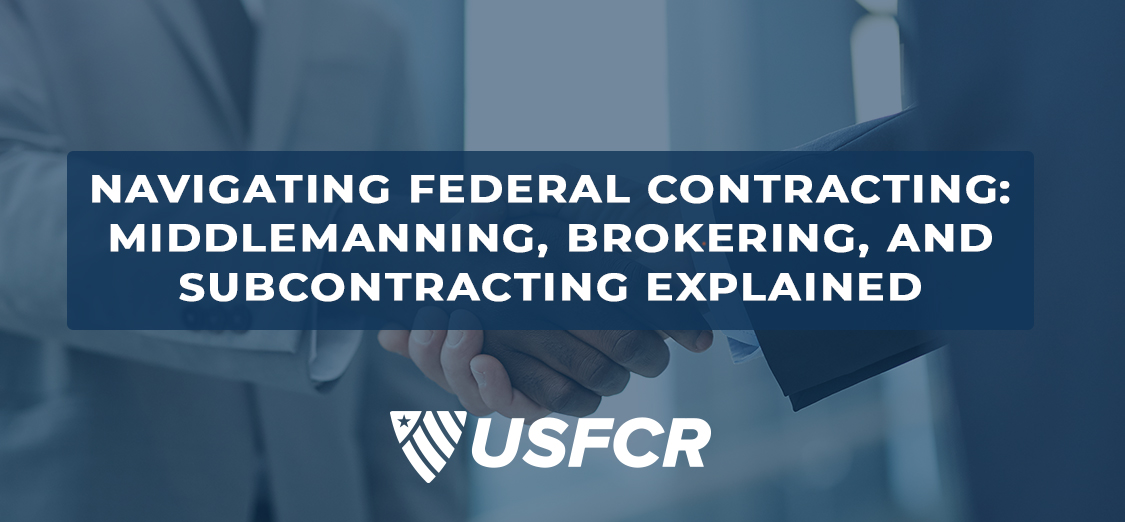
In the world of federal contracting, understanding the different roles and strategies is essential for success. Whether you're a seasoned contractor or new to the field, grasping the distinctions between middlemanning, brokering, and subcontracting can impact your ability to win contracts and remain compliant. Let's break down these concepts to ensure a stronger strategic approach to federal procurement.
Middlemanning in Federal Contracting
Middlemanning, often misunderstood, refers to acting as an intermediary between the government and suppliers without adding substantial value to the contract. While it may seem like a viable approach, federal regulations discourage this practice because agencies prefer working with contractors who provide direct expertise, management, or tangible contributions to the project.
Key Considerations:
-
Prime contractors must demonstrate technical capability and past performance in the field they are bidding on.
-
The Limitations on Subcontracting (FAR 52.219-14) requires small business primes to perform a minimum percentage of the work themselves.
-
Acting solely as a middleman can lead to bid rejection, compliance issues, and contract termination.
Brokering in Federal Contracting
Brokering involves connecting buyers and sellers but differs from middlemanning by adding value to the transaction. Brokers typically engage in negotiations, manage logistics, and provide strategic pricing insights. While brokering may be acceptable in some procurement categories, it is not a recognized or preferred approach in most federal contracts, especially those requiring direct performance or service delivery.
Key Considerations:
-
Brokers must ensure compliance with federal acquisition regulations, including sourcing restrictions.
-
The government typically avoids awarding contracts to businesses that do not provide direct services or goods.
-
If engaging in brokering, businesses must clearly define their added value in the procurement process.
Subcontracting: A Compliant Approach
Subcontracting is a legitimate and common strategy in federal contracting. A prime contractor can outsource part of their contractual obligations to another business (the subcontractor) while still being responsible for overall contract performance. Unlike middlemanning or brokering, subcontracting is explicitly allowed and regulated, ensuring that primes meet self-performance requirements while leveraging specialized skills.
Key Considerations:
-
Subcontracting must adhere to the Limitations on Subcontracting (LOS) Clause, ensuring the prime does not subcontract more work than allowed.
-
Prime contractors must actively manage and oversee subcontractors to maintain compliance.
-
Subcontracting is most successful when the prime contractor provides contract management, compliance oversight, and industry expertise.
Final Thoughts: Navigating Federal Contracting Successfully
Understanding the differences between middlemanning, brokering, and subcontracting is crucial for any business looking to compete in the federal marketplace. While subcontracting is a widely accepted strategy, attempting to act as a middleman without adding value can lead to bid disqualification and compliance issues. Contractors should focus on providing expertise, demonstrating past performance, and managing contracts effectively.
At US Federal Contractor Registration (USFCR), we help businesses navigate federal contracting, ensuring they remain compliant while maximizing opportunities. Whether you need assistance with SAM registration, bid preparation, or compliance strategies, our team is here to guide you through the complexities of federal procurement.
To speak with a Registration & Contracting Specialist, Call (866) 216-5343



